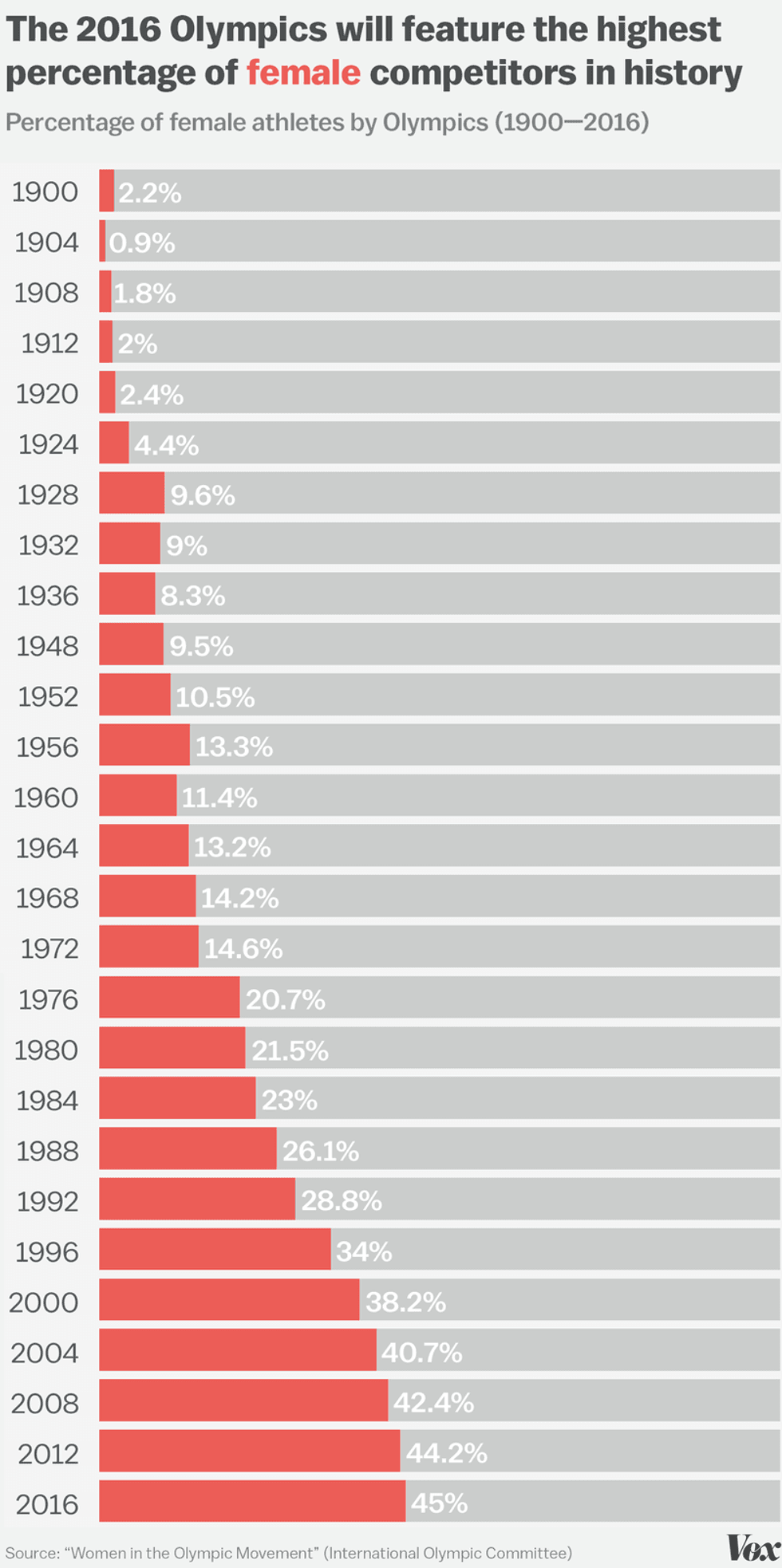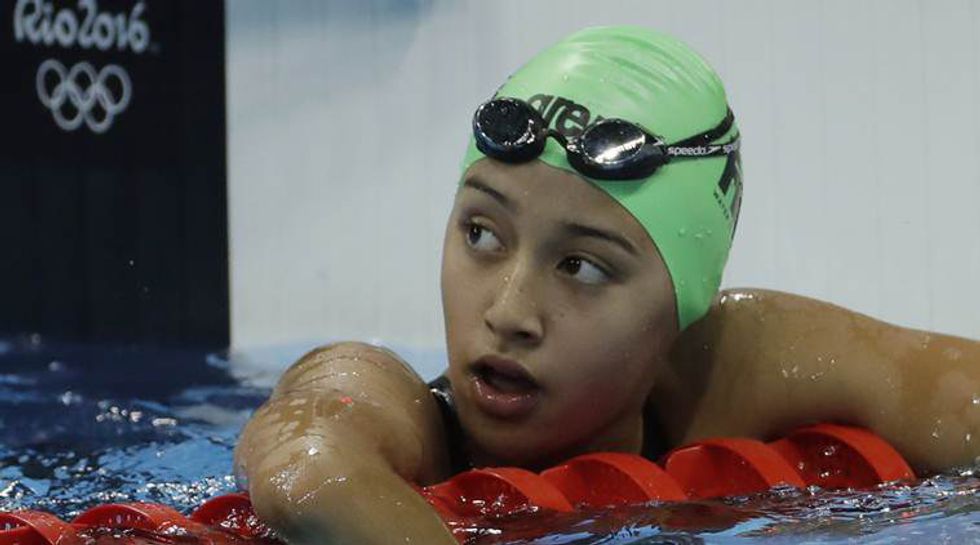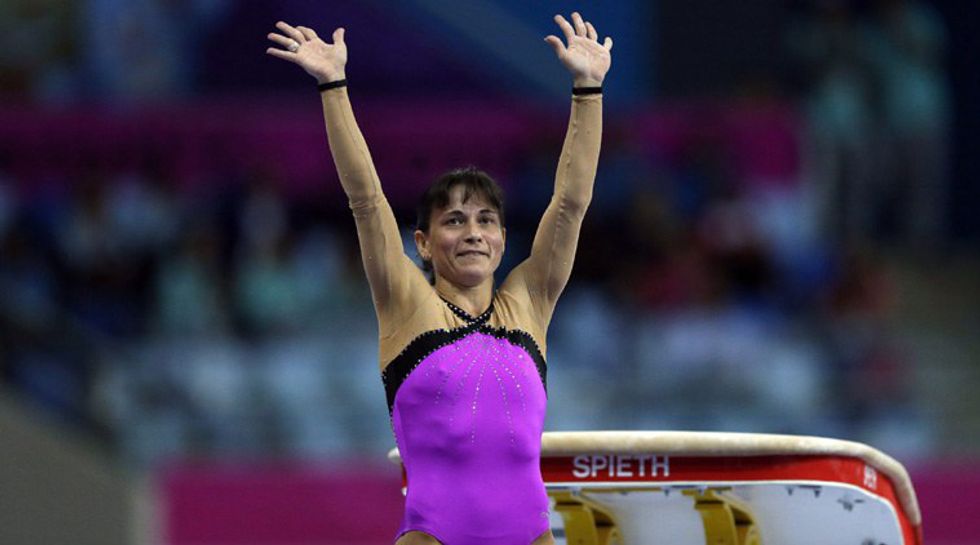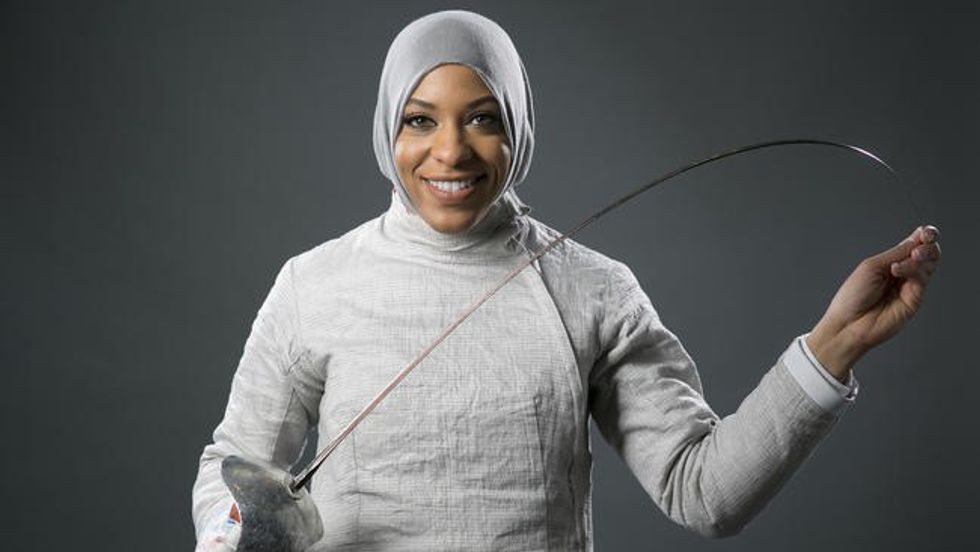The 2016 Olympics will feature the highest percentage of female competitors in history. According to the International Olympic Committee, 45 percent of all competitors will be women. This is a huge contrast compared to the 2.2 percent of female competitors in 1900 when they were first permitted to participate.
UN Women Executive Director Phumzile Mlambo-Ngcuka carried the Olympic Torch on the day of the opening ceremony of the Rio Games. The Olympic Flame represents the value of purity and the runners who carry the Olympic Flame convey a message of peace on their journey.
“We carried the Olympic Flame cheering for the thousands of women athletes who will be part of the Rio Games and who, with their swiftness and endurance in the sports arena, increase women’s visibility as top-achieving sports icons, strategic thinkers, role models and leaders,” said Mlambo-Ngcuka.
“We also raised the flame for all the young women and girls in even the furthest-flung villages who are fighting against all odds to play sport, stay on the field, and reap its benefits of broader freedoms.”
We have the honor to witness women from all different walks of life shattering ceilings during these Olympic Games.
The youngest competitor at the 2016 Summer Olympics is 13-year-old swimmer Gaurika Singh from Nepal, who also survived the massive earthquake last year that killed thousands.
Oksana Chusovitina has been competing longer than most of her rivals have been alive. The 41-year-old is the only female gymnast to compete in six Olympic Games (beginning in 1992 when she helped the former-USSR team win gold), and is the oldest Olympic female gymnast of all time.
Another woman making history is fencer Ibtihaj Muhammad, the first U.S. woman to compete in a hijab at the Olympics. “I want to compete in the Olympics for the United States to prove that nothing should hinder anyone from reaching their goals — not race, religion or gender,” Muhammad said.
These are just a couple of the thousands of women from all over the world that will be participating in the Rio games, all of whom should be recognized by their names and accomplishments. They have spent countless hours and dedication to merely be identified by everyday societal sexism or the media’s ignorant commentary.
Since women’s first participation in the 1900 Olympics, they have brought down gender barriers and reduced discrimination. Today, at the Rio Games, we are just under parity in terms of participants and events. Yet outside, rooted impediments remain in order to accomplish full equality.
In Brazil, as in many other places around the world, adolescent girls and young women are often pressured to conform to traditions and social stereotypes.
“Globally, only one in five parliamentarians is a woman; one in three women worldwide experiences violence against her and without change in the present rate of progress, it will take another eight decades for women to achieve equality in work,” said said Mlambo-Ngcuka.
Today, we are at a time where we can witness how sports unite people from all over the world with the power to rise above differences of sex, race, religion and nationality. Change is coming from all directions, with international movements and internal awareness. It’s daring to hope that the Olympic flame will spread, and the perseverance to achieve gender equality will exceed all obstacles.























